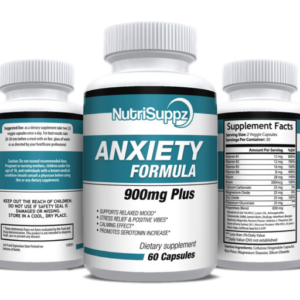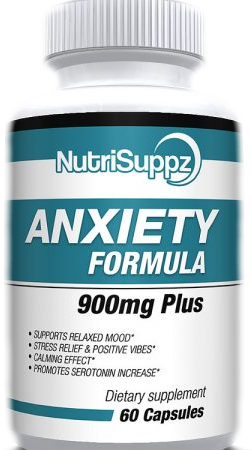31 Aug Mineral Magic: How Essential Minerals Can Ease Anxiety
Mineral Magic: How Essential Minerals Can Ease Anxiety
Managing anxiety often requires a multifaceted approach, and nutrition plays a vital role in supporting mental health. Minerals, in particular, have a significant impact on anxiety levels and overall emotional well-being. At Nutrisuppz, we recognize the importance of understanding how these essential nutrients can influence your mood. In this blog post, we will explore how various minerals contribute to anxiety management and provide guidance on incorporating them into your diet.
The Role of Minerals in Mental Health
Minerals are crucial for numerous bodily functions, including those that affect brain health and emotional stability. They are involved in neurotransmitter function, nerve signal transmission, and the regulation of stress responses. Imbalances or deficiencies in certain minerals can lead to heightened anxiety and other mental health issues.
Magnesium: The Calming Mineral
Magnesium is often referred to as a calming mineral due to its ability to regulate neurotransmitter activity and promote relaxation. It plays a key role in the functioning of the brain and nervous system, helping to manage the body’s stress response. Research has shown that magnesium deficiency is associated with increased anxiety and stress levels. Ensuring adequate magnesium intake can help stabilize mood and reduce anxiety symptoms.
Zinc: A Key to Emotional Balance
Zinc is another essential mineral that contributes to mental health. It is involved in neurotransmitter function and the regulation of brain signaling pathways. Zinc deficiency has been linked to increased anxiety and mood disorders. By supporting the proper functioning of neurotransmitters, zinc can help maintain emotional balance and potentially alleviate anxiety.
Iron: Vital for Cognitive Function
Iron is well-known for its role in transporting oxygen in the blood, but it also affects brain health. Adequate iron levels are necessary for cognitive function and emotional stability. Low iron levels can lead to fatigue, irritability, and difficulty concentrating, which may exacerbate anxiety symptoms. Maintaining healthy iron levels through diet or supplements can support overall mental clarity and emotional well-being.
Calcium: More Than Just Strong Bones
Calcium is primarily recognized for its role in bone health, but it also impacts mental health. It helps regulate nerve signaling and muscle function, including those that control mood and stress responses. Calcium imbalances can affect mood stability and contribute to anxiety. Including calcium-rich foods in your diet or considering supplementation can help support mental health.
Copper: The Overlooked Mineral
Copper is essential for the proper functioning of the brain and nervous system. It aids in the production of neurotransmitters and helps regulate the body’s stress response. A deficiency in copper may contribute to mood imbalances and anxiety. Including copper-rich foods such as shellfish, nuts, and whole grains can support mental health.
Manganese: Supporting Brain Health
Manganese plays a role in various biochemical processes that affect brain function. It is involved in the synthesis of neurotransmitters and the regulation of mood. Proper manganese levels are important for cognitive function and emotional balance. Incorporating manganese-rich foods like whole grains, nuts, and leafy greens can help maintain mental well-being.
Potassium: Balancing Your Mood
Potassium is crucial for maintaining fluid balance, nerve function, and muscle contractions. It also plays a role in regulating blood pressure and stress responses. Imbalances in potassium levels can impact mood and contribute to anxiety. Ensuring adequate potassium intake through foods like bananas, oranges, and sweet potatoes can support overall mental health.
Sodium: Understanding Its Role
While excess sodium is often associated with health issues, it plays a role in maintaining fluid balance and nerve function. Proper sodium levels are essential for the body’s stress response and overall mental stability. However, it’s important to manage sodium intake carefully and focus on a balanced diet to avoid imbalances that could affect anxiety levels.
How to Address Mineral Deficiencies
Identifying and addressing mineral deficiencies is crucial for managing anxiety. Regular check-ups and blood tests can help determine if you have any deficiencies. Based on the results, you might need to adjust your diet or consider supplements.
Creating a Balanced Mineral-Rich Diet
To effectively manage anxiety through nutrition, aim for a balanced diet that includes a variety of mineral-rich foods. Incorporate foods from different mineral categories to ensure you’re getting a broad range of nutrients. This approach not only supports mental health but also contributes to overall well-being.
Final Thoughts on Minerals and Anxiety
Minerals play a significant role in maintaining mental health and managing anxiety. By understanding how minerals like magnesium, zinc, iron, calcium, copper, manganese, selenium, potassium, and sodium affect your mood and brain function, you can make informed dietary choices that support emotional balance. At Nutrisuppz, we emphasize the importance of a nutrient-rich diet as part of a comprehensive approach to managing anxiety.



No Comments